So do you use Wesson vegetable oil? I know my family did for years. In fact, I remember the days when Brady Bunch mom Florence Henderson pitched the vegetable oil regularly. Does this print ad jog your memory? Yes, Wessonality!
Indeed, the 60’s and 70’s were the heyday for processed food. I call it the Tang Era. In those days, processed foods were still new, innovative … and in the case of Tang … space age. Somehow chemicals, artificial ingredients, preservatives and fortification ruled vs. Mother Nature. Heck, Chiffon margarine even mocked Mother Nature. Remember?
|YOUTUBE:LLrTPrp-fW8:300|
A lot has happened since those days. Trends like “fat free” and “low carb” have come and gone, and in their place they’ve left a more skeptical consumer. In many ways, today’s marketplace has taken a complete, 180 degree turn from the 70’s. Nowadays consumers don’t trust processed food companies, so claims like “natural” and “organic” are driving growth. A recent report of grocery purchases shows that “U.S. sales of natural/organic food and beverages grew 9%, to nearly $39 billion.”
Never ones to give up, however, many processed food companies have been stretching and abusing the claim “All Natural” to help grow their own business – hence my series “All Natural … Really?” Now I’m not sure exactly when Wesson hitched itself to the “All Natural” trend, but the fact that they do is alarming for two reasons. First, most vegetable oils, including Wesson, are processed by chemical extraction. Solvents like petroleum-derived hexane apparently produce much higher yields than the traditional, mechanical extraction techniques. Second, Wesson oils are made with genetically-modified ingredients (corn, soybeans, or rapeseed – aka canola) in the manufacturing of their oils.
So in what way is Wesson Oil “natural”? To be honest, I can’t think of one, and it appears that there are quite a few people that agree with me since ConAgra (owner of Wesson Oil) is now facing two class-action lawsuits recently filed in New York and California. Perhaps the old Chiffon commercial had the “lesson” right after all … “It’s not nice to fool Mother Nature!”
Now if you are a regular user of Wesson or other popular brands like Crisco or Mazola (both of which also use chemical extraction processes and genetically-modified ingredients) you may be wondering, what should I use instead? Certainly there are lots of different opinions on this question, but here is what do. First, I always try to buy organic. Second, I select from one of the oils on the chart below depending on what I’m making since some oils withstand heat better than others. Also it’s important to note that although these oils may be “safer” to use than Wesson, you still need to eat a balanced diet where fats and oils are used judiciously.
If you want to share your point of view or add some additional thoughts, please click on the “comment” section below. Also, thanks go out to Renae Maslonkowski, one of my Facebook page fans, for the idea for this installment of my on-going series “All Natural … Really?”
If you want to suggest a post idea, to keep up with the latest installments of my blog, or to follow the release of my book, FAT PROFIT$, please friend me on Facebook, follow me on Twitter, and sign up for free email updates.
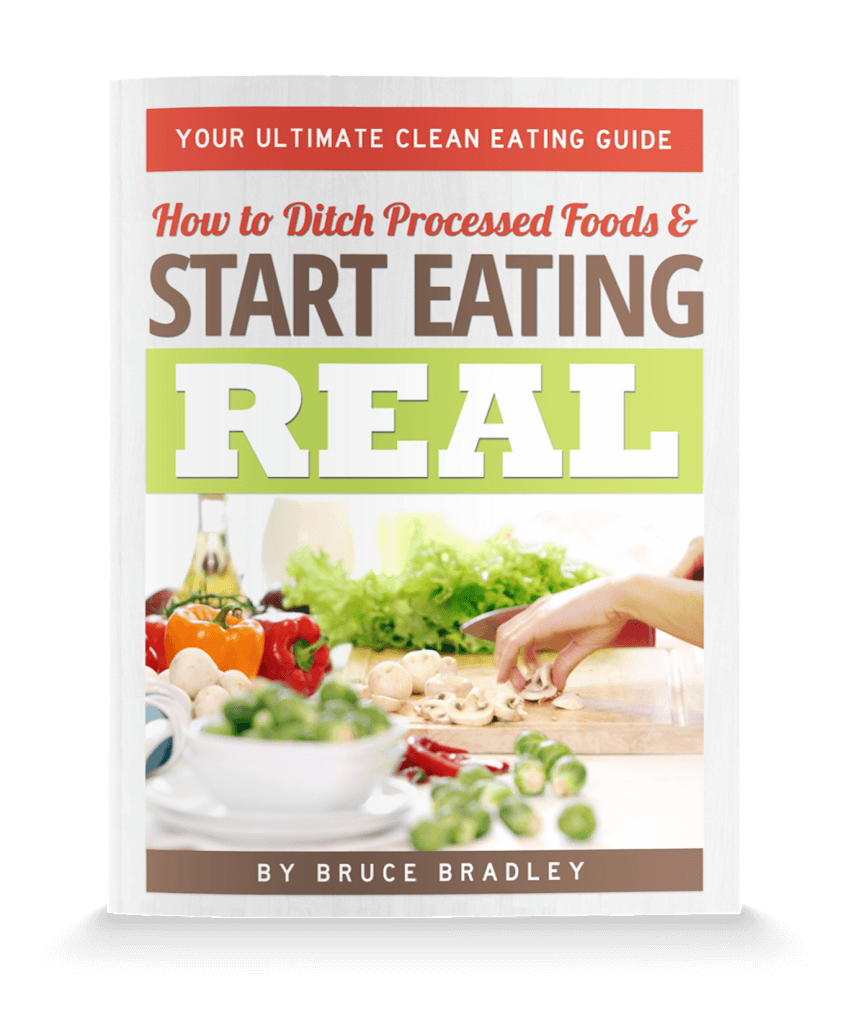
GET MY FREE BOOK NOW!
End the confusion! Learn what’s really in your food and how to take simple steps toward eating healthier!
EAT HEALTHIER TONIGHT!
If you enjoyed this article or recipe may I ask you a favor? Please share it with a friend. Why? Because together we can make a difference and help each other live happier and healthier lives. Thank you!
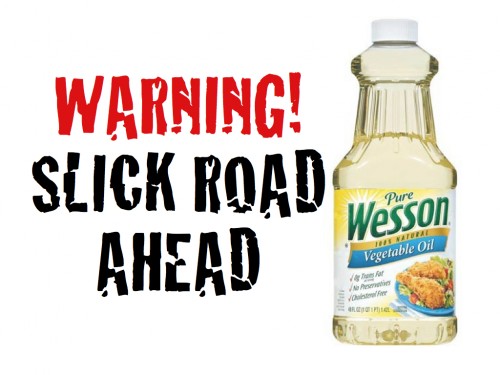


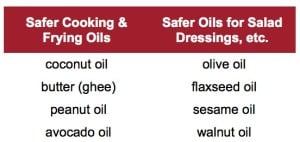


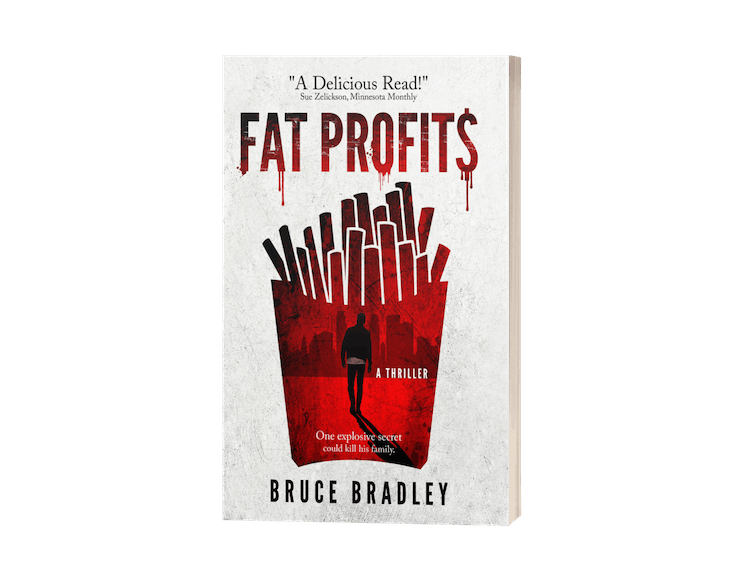
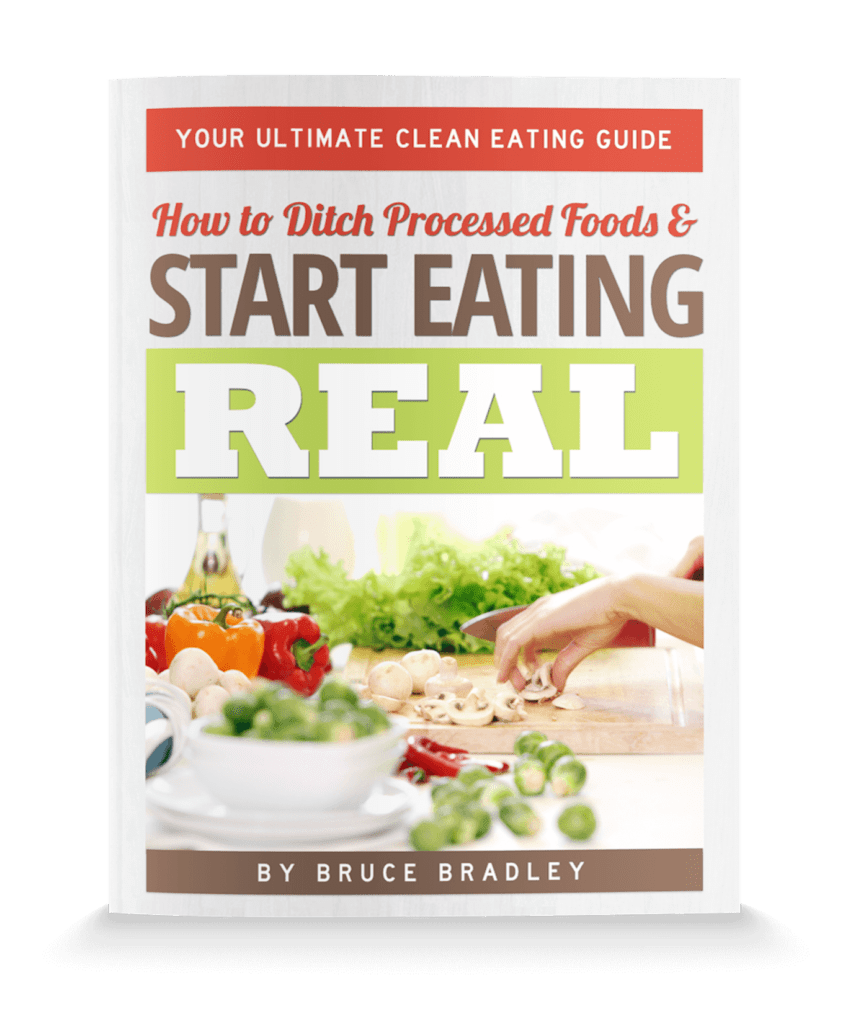

14 Responses
Maybe it’s time for you to look at the truth about saturated fats and the role of fat in our diet. Recommended reading: Gary Taubes’ “Why We Get Fat” and “Good Calories, Bad Calories,” and watch the movie “Fat Head.” There’s no scientific evidence that natural fats are bad for you, or that the “calories in, calories out” theory is true. Love your blog, but these should be essential reading for everyone who is interested in the science of nutrition.
Oils rich in omega-3s and 6s should be used very judiciously indeed if at all. raypeat.com/articles/articles/fats-degeneration3.shtml Peanut oil is especially rich in omega-6. I used to consume a peanut butter sandwich almost daily at lunch. After four decades or so I began to experience leg pains and was losing mobility. Two months after I stopped eating peanut butter the leg pains were gone. Residual problems remain. Although considerable strength and stamina have returned, I still have problems with muscle stiffness in my legs.
Google – “David Brown Omega-6”
Coconut oil is the way to go, all the evidence is there, and all the research demonstrates time and again, MCT’s, as well as the other fats found in coconut oil are VERY good for health.
I use olive oil for all my cooking needs. It’s the only oil I have in my cupboards. If you get a good quality extra virgin olive oil it’s great with anything. It only makes food taste better in my opinion.
I rarely fry anything, but when I do, I use lard. I’ve been rendering it myself from local, pasture raised pork. It’s easy to do and you can’t beat the taste. Food isn’t greasy, like when I used to fry with oil and it doesn’t leave that disgusting coating in your mouth. I think it’s healthier too. Real food beats food-like substances every time!
Oh yes! As much as I love my coconut oil and butter, lard is totally the way to go if you can get it. The farm where I buy my pork and chicken (husband still isn’t quite down with grassfed beef) sells pre-rendered lard at a very reasonable price. Not only pastured, but heritage too!
I’m trying to convince them to start stocking tallow. 😀
Olive oil is always a good choice. What about vegetable oil blends from Italy. They have blends containing olive oil and sunflower oil.
Comment on oils – I use only Extra Virgin Olive Oil, for everything. Higher price tag, but has omega 3 fatty acids- very healthy to combat “bad” cholesterol. POINT – I deep fry in this oil with great results. Key is to have a good deep fryer. I use the new FryDaddy – it keeps the oil at 375, perfect. The oil lasts a very long time and can be reused many times. Chicken wings are my favorite thing to fry, and I make my own hot sauce and blue cheese dressing, fresh. When I use the olive oil, I don’t worry much about deep frying. At the correct temperature the food is not greasy – and chicken fat (what is left) with any residual olive oil is healthy in my opinion. I love the olive oil. Last tip- great chefs use extra virgin olive oil mixed with a little REAL butter to saute foods in a hot black skillet. I do this- great tasty results. – PB
(check out the link below)
http://www.oliveoiltimes.com/olive-oil#c9om/olive-oil
Peter:
I use a high quality olive oil often as well. For deep frying, however, I might choose an oil that is a little less temperature sensitive. Here’s a handy oil chart in case you’re interested.
http://www.eatingrules.com/Cooking-Oil-Comparison-Chart_02-22-12.pdf
Thanks,
Bruce
So…. why is Wesson oil called “vegetable” oil when it is made from 100 percent soybean? (which I never want to eat due to recently educating myself on soy.)
So what is so wrong with GMO’s how do yo think they achieved the variations of apples and tree nuts. It didn’t come with a fancy title like “GMO” it was simply called grafting and selective breading. You just like to sit on your high horse and spew fear. That is called fear mongering, just like the widest known form of mongering “fish monger” you are just spreading slime and think that “organic” is something real special. I looked into turning my ranch into “certified organic” it costs $4800.00 to register and between $600.00 and $800.00 a year depending on the crop. This than requires you to prove a negative of what has not been put on or in the soil over the previous five years and if you can not prove that all animals that have ever pooped on the ground have not eaten all organic food you can not be certified. It requires putting up eight to ten foot fences and keeping an unused perimeter strip of a minimum fifty feet that has to be wasted if you have neighbors that spray for pests of any kind. So quit claiming the GMO and certified Organic are better for you all of my fields use flock and heard animals for weed control and fowl for insect control but since I do not produce a large enough yield to be able to pay the outrageous “GOVERNMENT” fees I can not call my products “Organic”
Thanks for your comment, David. I disagree with a lot of what you say, but we all have our right to our opinion. My intent isn’t to be a fear monger. I honestly think that helps no one. Instead, my goal is to share information and the facts to help people make better choices for themselves.
I truly believe that diets rich in highly processed foods aren’t healthy, and my hope is to encourage people to cook more and eat less processed food. While I’m not a fan of GMOs, I don’t believe they’re killing us. They’re just part of a bigger, highly processed food culture we live in.
Finally, I shared a post about why I try to choose organic a while back. I don’t believe it’s necessary to eat organic to eat healthy. Again, limiting the amount of processed foods is the base goal. Choosing organic, however, does bring some added benefits that I believe are worthwhile.
I hope that clarifies things a bit. If we need to just leave things at “we agree to disagree” that’s cool.
Thanks,
Bruce
I used Wesson oil to cook
And fed my 2 year old. It gave him hives. We’ve used oleico oil and haven’t had any issues. But when we used Wesson he had a bad allergic reaction. Luckily it wasn’t dangerous. But it did scare the bigeebies out us.
Thanks for your comment, Robert. Highly processed oils like Wesson aren’t as simple as they look. Although allergic reactions are rare, there is residual hexane in these kinds of oils that makes an allergic reaction possible. That said, depending on the type of Wesson oil you used (corn, soybean, canola), there may be an underlying allergy to the main ingredient. FYI … of the three types of Wesson Oil currently available, its soybean-based oil is the most likely to cause an allergic reaction.